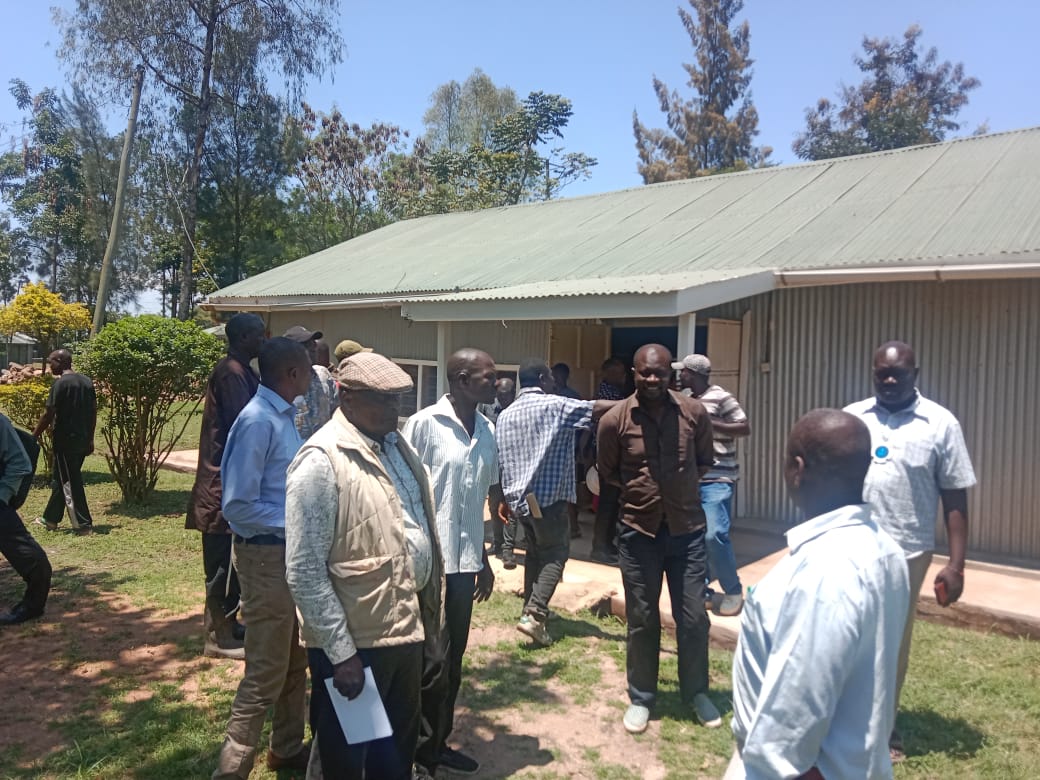

Sugarcane farmers in Miwani, Kisumu county, have opposed plans to convert more than 100 acres of farmland into residential estates.
They warned that the move would cripple the sugar industry and undermine food security.
The farmers, during a public participation forum, rejected the proposal by Safaricom Investment Cooperative Society to subdivide, fence and grade the land for housing.
The meeting was organised by environmental consultants on behalf of the developer.
Farmers argued the parcel Plot No. 1506/1 has historically supported cane production and should remain agricultural.
“We are rejecting the Safaricom Investment Cooperative project because what we need here is land for farming, not residential houses,” Huss Ojwala, a farmer, said.
He said they want them to use the land for agricultural purposes because that's what the community need.
Zedekiah Odhiambo, another farmer, questioned credibility of the process, saying it was poorly publicised and excluded key partners.
“There were no posters, farmers were not fully involved and no change-of-use approval has been made. We oppose the project and want this area to remain farmland,” he said.
Michael Ngeso, a resident of Miwani sugar zone, warned that approving the project would undermine the local economy.
“If the land is converted into residential use, it will deprive us of raw materials for our factories, where our youths are employed. We oppose any project that undermines agriculture in this zone,” he said.
The Kenya National Association of Sugarcane Farmers, represented by Caleb Ochieng, also dismissed the proposal.
“This land is an agricultural zone and it should remain so. We advise Safaricom to release these farms back to farmers for sugarcane production. Allowing this project will collapse our economic base,” Ochieng said.
The farmers said sugarcane remains the backbone of Miwani’s economy and warned against replacing farming activities.
Kibos Sugar and Allied Industries Ltd (Ksail) also raised strong objections arguing that the move threatens food security, local industry and thousands of livelihoods.
According to Ksail, the 100 acres under dispute have for years been key production zones, providing the factory with about 40,000 tonnes of sugarcane annually before it was sold to a developer.
This output, the company says, translated into 4,000 tonnes of sugar that supported domestic consumption, generated taxes and created jobs.
"The country is already grappling with sugar shortage, forcing us to rely heavily on imports. Converting such critical agricultural land into housing estates is not only short-sighted but undermines national food security,” Ksail corporate affairs manager Joyce Opondo said.
The firm insists that before any change of user is approved, proper consultations should be undertaken with stakeholders in the sugar industry, given the sector’s importance to the regional and national economy.
Kibos further argues that the project contradicts the County Government of Kisumu’s Physical and Land Use Plan, which designates Miwani Central as an agricultural and industrial hub.
The company warns that turning farmland into housing estates would set a dangerous precedent, putting more pressure on agricultural activities.
“Subdivision of agricultural land for residential use will deny the country vital resources needed for sugarcane cultivation and eventually cripple industries that sustain communities and contribute to the economy,” Opondo said.
The company is also appealing to Safaricom Investment Cooperative Society, which is behind the proposed housing project, to withdraw from the venture and align with government efforts to boost food and cash crop production.
Kibos urged the Kisumu County Physical Planning Department to halt any approvals for change of land use from agricultural to residential purposes, unless the investments are directly linked to agro-industrial development.
“As a company, we are not against investment, but it must be sustainable. We urge investors to respect agricultural zones, which are strategic for food security and industrial growth,” Opondo said.
Instant Analysis
The dispute in Miwani underscores Kenya’s growing tension between real estate development and agricultural preservation. While investors view land as a lucrative asset for housing, farmers and industry players argue that farmland, especially in cane belts, remains central to food security and industrial survival. Kisumu County now faces a test: whether to prioritize its land use plan and agro-economy or bend to real estate pressures. The outcome will set a precedent for balancing investment and food security across the country.













